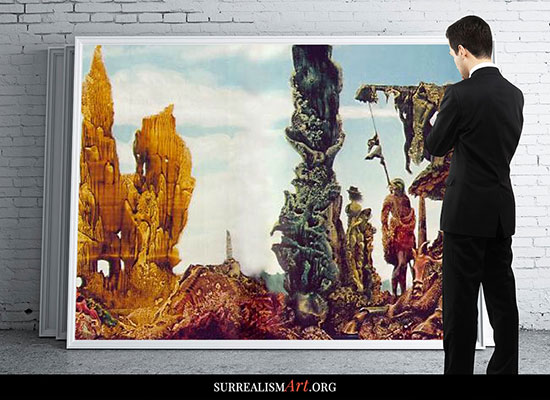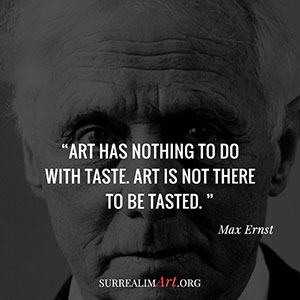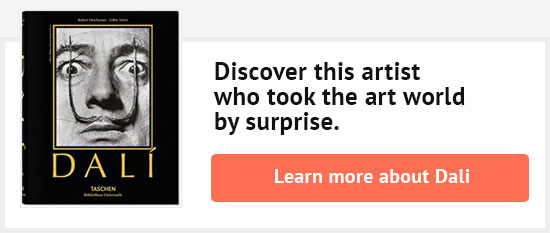Biography of surrealist Max Ernst
Max Ernst is an painter who was one of the major artist of the dada and surrealist movements without restricting himself in it. Essayist and art explorer, he has, as many of his colleagues of the time, followed his intuitions.

Studies and the journey of Max Ernst
Max Ernst, a German painter and sculptor, was born in 1891 in Brühl. His father was the painter Philipp Ernst. Max begins studying philosophy in 1909 at the University of Bonn, but soon abandons his studies to devote himself to art. In 1911, he meets members of the Blaue Reiter group with which he will present two years later.
His first paintings, made between 1909 and 1913, are of expressionist style to then become surrealist. Also in 1913, he goes to Paris and meets Guillaume Apollinaire and Robert Delaunay.
Explorations of all modern movements
The war spreads in Europe and Max Ernst finds with his colleagues of the Dada movement the same desire to protest. Returned to Germany to serve his country, he takes an active part in the Dada movement in Cologne, which will become, thanks to him, an active center of the movement. This period marks his works, influenced by Paul Klee or Marcel Duchamp.
He discovers the metaphysical painting of De Chirico in 1919 and becomes, in 1921, a friend of Paul Eluard. Max Ernst explores the oneiric painting, a fantastic realistic style, more focused on the inner world where the choice of title of the works affects the interpretation of the paintings.
The exploration of Max Ernst was neither limited to a subject nor to a finish. The realization processes are at the heart of his concerns. He invents, in 1925, the frottage technique; he lets a pencil lead move on a sheet placed on a surface of different materials. This practice lets it show, at random, forms that we would think are outputs of a dream world. During his travels, he creates collages and tries his hand at sculpture in the 30s.
American period of Max Ernst
During World War II, Max Ernst flees Europe to get to New York. He continues his art with Marc Chagall and Marcel Duchamp, while contributing to the rise of abstract expressionism. Nevertheless, he returns to France in the 50s and, when receiving an award at the Venice Biennale, he gets out of the Surrealist movement. He will continue to work and explore his art until his death in 1976.
 Arts3 Network
Websites Edition
Other articles
Salvador Dali
Man Ray
Jean Arp
Arts3 Network
Websites Edition
Other articles
Salvador Dali
Man Ray
Jean Arp

“Art has nothing to do with taste. Art is not there to be tasted. ”
See more quote by Max Ernst
Travel Info
- Max Ernst Museum
- Address: Comesstraße 42, 50321 Brühl, Germany View map
- Phone: +49 2232 57930
- Website: maxernstmuseum.de
- History of Surrealism André Breton Branches of Surrealism Timeline Surrealist cinema The Automatistes Group Surrealism Manifesto Origin of surrealist painting Surrealist writing techniques
- Surrealist Artists Francis Picabia Jean Arp Joan Miro Man Ray Max Ernst
- René Magritte Biography Magritte & Lothar Wolleh
- Salvador Dali Biography Artworks Eccentric character Dali & Man Ray Dali & Picasso L'Âge d'or The Persistence of Memory The Hallucinogenic Toreador Movies Salvador Dali Museum

Max Ernst retrospective

